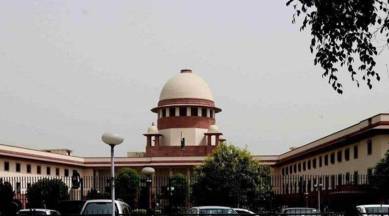Stay updated with the latest - Click here to follow us on Instagram
Supreme Court: Can’t file chargesheet just to deny bail without finishing probe
The court was hearing the plea of a woman seeking default bail for her husband who was arrested by the CBI in connection with a graft case.

DEPRECATING THE “practice” of investigating agencies filing chargesheet in court even before completion of the probe to deny default bail to accused, the Supreme Court Wednesday said that even in such cases, the right of the accused to default bail will not be extinguished.
Section 167 says that an arrested person will be entitled to default bail after 90 days in cases where the investigation relates to an offence punishable with death, imprisonment for life or imprisonment for a term of not less than 10 years and 60 days, where the investigation relates to any other offence.
The court was hearing the plea of a woman seeking default bail for her husband who was arrested by the CBI in connection with a graft case.
Rejecting the Centre’s objection against the maintainability of the petition, the court said, “It must be remembered that our Constitution has entrusted the Supreme Court with the most important task of protecting civil liberties of individuals, and society at large… If this court refuses to exercise its jurisdiction on technicalities in cases of violations of fundamental rights, it will lead to a ripple effect that will result in a dysfunctional social contract, wherein the people of this country would become subject to an arbitrary and unfettered tyranny of the state.”
The top court held that “the relief of statutory bail under Section 167(2) of the Cr.PC, in our opinion, is a fundamental right directly flowing from Article 21 of the Constitution of India, and the violation of such a right, as mentioned above, directly attracts consideration under Article 32 of the Constitution”.
It said “the reason for such importance being given to a seemingly insignificant procedural formality is to ensure that no accused person is subject to unfettered and arbitrary power of the state”.